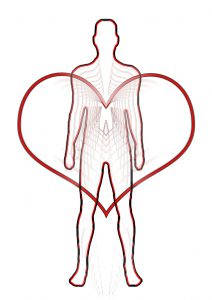Do you ever feel like doctors treat you like a bundle of symptoms, and not like a whole person? That’s a complaint a lot of people have, especially if they’re dealing with a complex or little-understood condition; this approach by some doctors can be especially frustrating if you feel like you’re never really getting any better. Sure, you might get temporary relief from symptoms that are bothering you, but it can start to feel like a game of whack-a-mole if your symptoms return, or if new ones crop up.
So is there a different approach out there? Yes – well, actually there are a few. But some require taking a leap of faith and abandoning many of the principles of Western medicine altogether, and that might not feel right for everyone. But there is an approach that some doctors are now taking, which feels like a less “alternative-y” alternative to traditional medicine, known as functional medicine. So what does this mean, and could it be worth looking into?
What Is Functional Medicine? 
Simply put, functional medicine is all about treating your body as a whole, and not just trying to alleviate one or more symptoms that you might be experiencing. Now, that sounds like what all medicine should be trying to accomplish, right? But in many cases, patients feel like doctors have moved away from that way of looking at things.
For example, if you go to your doctor with chronic heartburn, you’re most likely going to come away with a prescription for an antacid. And that might be very helpful for giving you some relief at that moment (and for getting some sleep that night!), but it’s not actually getting to the root of the problem. It’s treating a symptom, most likely temporarily, and not figuring out why you have heartburn – what might be going on in other parts of your body, how your lifestyle is contributing to it, etc – so you can have a chance to get well in a more comprehensive way.
And while heartburn is a pretty simple example, using these principles could possibly make a big difference in the lives of people suffering from more complex conditions, like:
- Metabolic syndrome
- Fibromyalgia
- Chronic fatigue syndrome
- Polycystic ovary syndrome
- Obstructive sleep apnea syndrome
- Irritable bowel syndrome
- Esophageal reflux disorder syndrome
- Erectile dysfunction syndrome
- Attention deficit disorder
- Depression
- Chronic pain
The above conditions are actually some of the most common conditions for which people seek medical attention, and can be some of the toughest to treat. So a functional approach could be worth a shot, especially since these conditions are usually all about how the body’s systems work together.
According to Amanda Malachesky, a functional nutrition coach based in Petrolia, California, “Functional medicine is helpful for anyone, but it is most useful for people who have been to many doctors, tried a lot of possible solutions, and are no closer to solving their health challenges.” That might sound familiar if you’ve struggled with something like chronic fatigue syndrome!
The Principles of Functional Medicine

So let’s take a closer look at what it actually means to be treated by a functional medicine practitioner. During your first visit, they’ll take a detailed medical and family history, and ask you about your symptoms as well as your overall health before they consider treatment. And those treatments will generally be personalized plans that might seem a little “different” at first, since functional medicine practitioners usually hold off on prescriptions and surgeries until they have tried more holistic approaches. So that might mean, for example, looking at the possibility of a gut imbalance for mental health issues, and suggesting diet and movement changes in your lifestyle.
Again according to Malachesky, “Functional medicine works towards root-cause resolution, works to use tools and frameworks to help us identify these root causes … and honors each client or patient as a truly unique individual, and tailors recommendations and treatments to the individual…And while people often want to go straight to treating the root causes, functional practitioners begin always with the foundations of health: diet, sleep, exercise, stress reduction, and blood sugar management…”
To break it down even further, the Institute of Functional Medicine (IMF) lays out the following 7 defining characteristics of functional medicine:
- Patient-centered versus disease-centered
- Systems biology approach: web-like interconnections of physiological factors
- Dynamic balance of gene-environment interactions
- Personalized based on biochemical individuality
- Promotion of organ reserve and sustained health span
- Health as a positive vitality—not merely the absence of disease.
- Function versus pathology focused
If all of that sounds a little intense, the most important things you might want to focus on when considering this type of treatment approach is that it is “patient-centered” as opposed to “disease-centered” and that it considers being actively “healthy” more than just being free of disease. Sounds good – but is it “real” medicine?
Who Practices Functional Medicine?
We can just feel some of you out there getting turned off, thinking that this is one of those fads that’s practiced by people with questionable training. But that’s actually not the case at all. Doctors who practice functional medicine are just that: “real” doctors who have been to medical school, and are fully licensed (but of course, always check to make sure that’s true for your doctor, no matter what their approach). They have simply decided to take a functional approach to their practice.
How do they do that? They need to take additional training that’s not offered in medical schools. To become certified in functional medicine, a healthcare provider must have already received a healthcare degree from an accredited university and hold up-to-date licensure in their area of practice, then they must complete coursework, generally through the IFM, which is currently one of the few training centers for functional medicine. Their coursework will be in six areas: gastrointestinal, detox, immune, hormone, cardiometabolic, and energy. They take exams, and need to retake exams every six years, as well as stay up-to-date with their licensure.
When it comes to choosing a functional medicine provider, you just need to do your homework as you would with any provider – the only difference is you’ll also have to check if their certification in functional medicine comes from a reputable organization, like the IFM.
And, since medical care is so expensive, and this type of practice might sound a little extra expensive, you might be wondering if insurance will cover it. In most cases, yes, because you would be seeing a “real” doctor for treatment. But, it is true that functional medicine practitioners might order a lot more tests than other doctors might, and they might refer you to specialists like nutritionists, so you could end up paying more out-of-pocket if your insurance company doesn’t cover everything.
Could It Be Right for You?

Functional medicine has been a thing since the early 1990s, and it is practiced by licensed professionals, so it is not, as we pointed out above, a new fad or a woo-woo practice meant to part you from your money. It really does seem to be meant to help you get to the root of what’s ailing you, and to treat you as a whole person, which can only be a good thing, especially if you’re suffering from a complex, chronic issue that doctors are struggling to find the correct treatments for. It also might be a good fit for you if you’re interested in taking a deeper dive into how your body systems work together, in conjunction with your genetics, and having questions answered as opposed to just symptoms treated.
On the other hand, though, if you’re looking for a quicker fix for relief of your symptoms, or feel more comfortable starting a course of treatment with prescription medications (or other more traditional treatments), this type of practice might not be for you. Hey, in some cases, heading to the doctor, having them take a look, and sending you on your way with the right medication is the best thing for you at that time!
So, however you choose to get treatment for whatever’s ailing you, make sure you feel comfortable with the care you’re being offered! And let us know: have you considered trying functional medicine, or have you tried it? What was your experience?